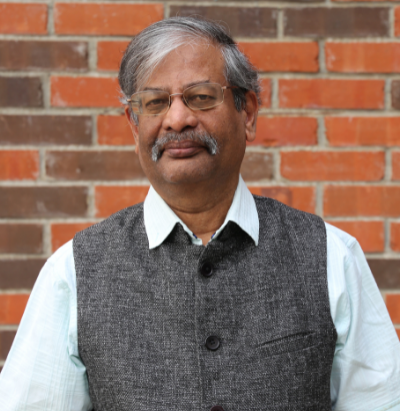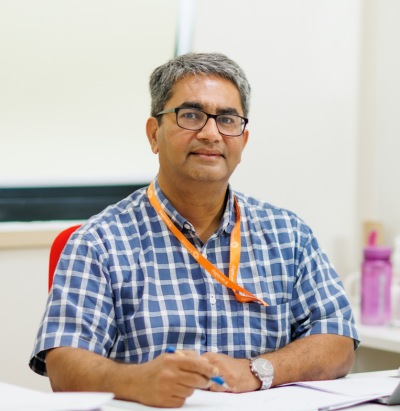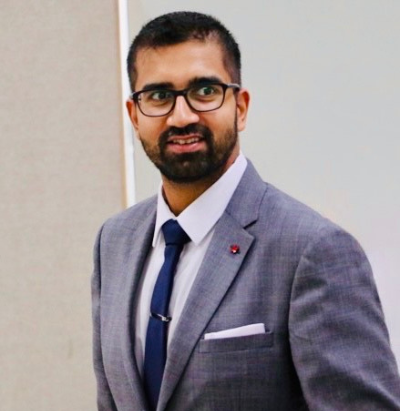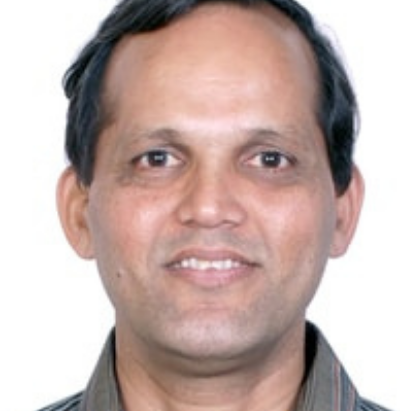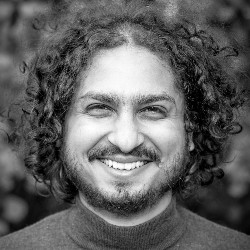Mathematics is not just a tool. It is a language, and a way of thinking and engaging with the world. Mathematical Thinking introduces students to the history, power and creative potential of mathematical and quantitative thinking and familiarizes students with some basic problem solving strategies. This course aims to give students an experience of contemporary Mathematics. One can see that Mathematics is driven by ideas, not by calculations. It is both beautiful and powerful, and it combines precision with the greatest creativity. En route, students develop a set of broadly useful problem-solving skills, gain experience in precise thinking and writing, and encounter some of history’s landmark ideas.
Department: Economics | Semester: Monsoon 2023
The course will begin with the origins of quantitative thinking vis-a-vis the number system and its evolution. This will be followed by a discussion of methods in problem solving and estimation, using real-world examples. We will then delve into the world of abstracts, i.e., set theory, geometry, graph theory, probability, and logic. Students will learn how some of these tools can be utilised to study (i) fairness in division of scarce resources, (ii) collective decisions in committees and democracies around the world (voting methods), and (iii) applications to finance- decisions regarding investments and returns. By the end of the course, students would have a basic understanding of the most widely used mathematical tools in the liberal arts. They will learn how to approach different problems from nature and society- by reducing the problems to their bare essentials and to analyse their underlying structural and logical patterns.
Watch Video
Department: Mathematics | Semester: Monsoon 2023
In this course we will begin by understanding if every one of us is capable of doing mathematics and if so to what extent. Moving on we trace the way various civilisations counted and measured. We will use our sense of figuring out bigger and smaller and find a way to estimate how many times we blink in a lifetime or count the number of grains of sand in a beach and many many more such tasks that appear impossible at first.
We will figure out if we can put a number to chance and use it to predict if some events happen and use the process to figure out if some goods will sell. We will discuss fairness in sharing and see various ways to share fairly and see if we can always be fair or not Many more such practical uses of mathematics will be dealt with in this course.
The course broadly follows the book “Mathematics for Liberal Arts Majors” by Christopher Thomas, but with our own interpretation.
Department: Mathematics | Semester: Spring 2024
For many mathematicians and scientists, life is about solving puzzles.
Much of high school mathematics can be viewed as a series of puzzles to be solved. Sometimes solving a puzzle requires one to experiment and find patterns. At other times just thinking logically or geometrically is enough.
You will work with your group to solve puzzles, and then write up the solutions on your own. No prior knowledge of mathematics is required to be able to solve the puzzles. But you will be required to use some computer algebra and some basic programming (which you have to pick up with the help of your group) to experiment and find patterns. The objective is to develop a taste for problem-solving and learn (with the help of some friends) the pleasures of getting creative ideas.
There is a further book reading component to the course…a book review. There will be a different book assigned to each group. The objective is to gain an appreciation for mathematics and how it is used in the world around us. In addition, the group has to present their book. Past presentations have involved making movies, writing and enacting plays, writing poetry, and various unique ways of storytelling.
At the end of the course, I expect students to gain an appreciation for mathematics, learn something about its culture, and experience the joy that accompanies a creative idea.
Department: Mathematics | Semester: Monsoon 2023
We all encounter prime numbers for the first time in secondary school: a natural number is called a prime if it has exactly two divisors, viz. 1 and the number itself eg. 31. We also learn that every natural number can be written as a product of its prime factors – for example 2022 = 2 × 3 × 337.
This is merely the beginning of a long story in which mathematicians working in the area of ‘Number theory’ have been unravelling the properties of prime numbers for thousands of years and yet the story is far from over –many questions about prime numbers remain unsolved!
Determining whether a number is prime or not (primality testing) has interested mathematicians for long. In recent times, attention has focused on tests that run efficiently on a computer, because such tests are an integral part of several widely used systems for encrypting data on electronic devices e.g. for e-commerce transactions or internet banking. Primality testing plays a crucial role in the widely used RSA algorithm, which we shall learn about in this course, whose security relies on the difficulty of finding a number’s prime factors. In the summer of 2002, computer scientist Manindra Agarwal and his then students Neeraj Kayal and Nitin Saxena, all from IIT Kanpur, discovered an efficient and deterministic test for the primality of a natural number (‘PRIMES is in P’) which subsequently appeared in the Annals of Mathematics in 2004.
The objective of this foundation course is to understand the Agarwal–Kayal–Saxena algorithm (AKS algorithm) without requiring any prior knowledge beyond general quantitative skills and the ability to think mathematically. As part of this course, we will develop the prerequisites from mathematics and theoretical computer science required to understand the AKS algorithm and to appreciate its elegance and importance.
References
- Rempe-Gillen, Lasse and Waldecker, Rebecca, Primality Testing for Beginners, Student Mathematical Library Vol. 70, American Mathematical Society, Providence, RI (2014).
- Agrawal, Manindra and Kayal, Neeraj and Saxena, Nitin, PRIMES is in P, Ann. of Math. Vol. 60(2), 781-793 (2004).
- Bornemann, Folkmar, PRIMES is in P: a breakthrough for “Everyman”, Notices of the AMS, Vol. 50(5), 545–552 (2003).
- Robinson, Sara, New Method Said to Solve Key Problem In Math, New York Times, Section A, Page 20, August 8, 2002.
Department: Mathematics | Semester: Monsoon 2023
Mathematics is central to modern day knowledge systems. It is one of the three R’s (Reading, `Riting and `Rithmetic) and is considered as the Queen of the Sciences. For those who use it, it is a science; for those who practise it, it is an art.
Some are passionate about it, some despair at hearing about it.
What is mathematics? What is it about that excites such contradictory responses?
The course will try to give an introduction to some of the central themes, ideas and constructs in mathematics illustrated by some concrete examples.
Department: Mathematics | Semester: Spring 2024
In this course, we will try to understand each of the words in the course title carefully. We will try to figure out how to quantify objects, how to reason, and what it means to reason. We will try to see if we can pinpoint what Mathematics is and maybe learn some Mathematics in the process. We will also try to figure out if “Mathematical” thinking is really a thing as opposed to just thinking!
Along the way we will pass through the following turns:
- Mathematics and language
- Counting counts
- Geography and representation
- Comparability and rankings
- Symmetry and rearrangement
- Locks: old and new
- Classical paradoxes
- Infinitude of infinities
- Self-similarity: trees, mountains, and coastlines
- Straight paths in crooked terrains
- Harmony: music and heat equilibrium
- Stability and chaos
- Luck by chance






